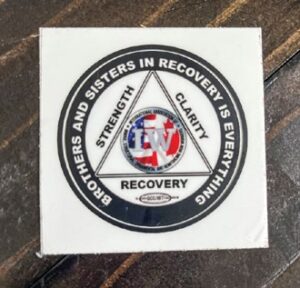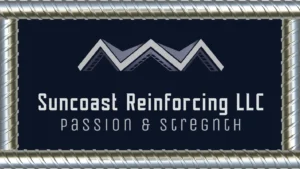Peer support can be highly effective in starting someone on the path to recovery. It aims to help workers connect to resources or treatment with the support of a peer, who typically is in recovery, and it can take many forms.
From Ironworker magazine — By Christopher Rodman, CPWR, The Center for Construction Research and Training
 Peers are crucial to the success of ironworkers. That’s true not just on the job but off it as well. One of the best examples of that comes through the peer support ironworkers provide to those struggling with addiction.
Peers are crucial to the success of ironworkers. That’s true not just on the job but off it as well. One of the best examples of that comes through the peer support ironworkers provide to those struggling with addiction.
The need is obvious. Studies indicate that over 15% of male construction workers in the U.S., and over 26% of younger construction workers, have a substance use disorder. In addition, nearly 10% of construction workers suffer from depression, and more than 25% have anxiety. Although there isn’t specific data from the Iron Workers’ locals, there’s nothing to suggest the numbers are significantly different from other trades.
General President Eric Dean, other officers and members across the union have been responding swiftly to support brothers and sisters in need, as the recovery meetings at the 2021 International Convention and subsequent IMPACT conferences show. But because mental health issues such as addiction still carry a stigma for many people, members are often unsure how to get help and worry they won’t be able to work if their situation becomes public.
Peer support can be highly effective in starting someone on the path to recovery. It aims to help workers connect to resources or treatment with the support of a peer, who typically is in recovery, and it can take many forms.
At Local 433, representing workers in Los Angeles and Las Vegas, one of the initial steps to providing peer support was simple: a sticker. Members in sobriety put a sticker on their hard hats that says “Brothers and Sisters in Recovery is Everything,” allowing members to identify someone willing to help.
Even though addiction and how to respond to it is “not a subject everyone likes,” says David Osborne, president of the Iron Workers State of California and Vicinity District Council, something needed to be done — the council lost 18 members by deaths due to alcohol, drug use or mental health issues in 2022. Osborne recognized how important it was to break down stigma, share information and support recovery.
“It hasn’t all gone smoothly,” admits Paul Moreno, president and business agent of Local 433, who has been in recovery since 2005. Now the union sponsors two monthly recovery meetings and continues educating workers about available resources. “The reality is people are going to do what they are going to do,” Moreno says, but when members, “are asking for help, we will be there to help them.”
British Columbia offers another approach to peer support. Danielle Shaw, trade improvement coordinator with Local 97’s Apprenticeship & Training Society, explains her local wants to help workers get and stay sober.
Realizing the job site can be a triggering setback for some people getting back to work, Local 97 set up a sober mentorship. It asked already-sober members to volunteer to be identified to the dispatcher, so when ironworkers concerned about sobriety call the dispatcher looking for a placement, they can ask to be put on a site with one of these volunteer mentors.
That way, they have one person to talk to for support and watch them on-site, an arrangement that is totally confidential. “It’s members helping members,” Shaw points out. Local 97 also has a construction rehab program and free counseling through an outside provider.
Local 7 in Boston offers a particularly extensive peer support program. Although the local did not know precisely how to help its members at first, remembers Shawn Nehiley, now president of the District Council of New England, “We needed to do something, and so we began talking to people and sharing ideas.”
Local 7 started with a once-a-week recovery meeting. Now, across the region, the Massachusetts Building Trades Recovery Council holds weekly meetings, all open to workers from any trade.
Also, the Building Trades Employers’ Association Northeast organizes a recovery week each spring, which since 2019 has included a stand-down. Other locals in the region started drawing on their knowledge to set up their own programs.
Billy Vietze of Local 7 explains he became involved in peer recovery because he “got sick and tired of seeing my brothers and sisters struggling.” At one point, he had been “helpless, homeless, and didn’t care if I lived” because of his addiction, but his journey to sobriety prepared him to help people who were where he had been.
Though Vietze knows from experience that the local’s leadership is committed to helping with addiction, he realizes that apprentices or journeyworkers are often “reluctant to call someone in power” to start the recovery process. With peer support, however, that call goes to a peer who doesn’t provoke that fear — who won’t, for example, affect the possibility of getting work.
People find peer support in multiple ways, including word of mouth, hardhat stickers and QR codes directing someone to a website with contact names and numbers. They end up talking to someone like Vietze, who can direct them to treatment programs. He notes the more he’s done peer support, the more he can tailor his referrals according to the member and the employee assistance program (EAP).
Local 7’s EAP, Modern Assistance Program, is free to members and their families and offers a wide range of services: individual therapy, assessments and referrals, detox placement, intensive outpatient programs, early recovery groups, substance use evaluations, court and DOT evaluations and anger man-agreement programs. They’re on call 24 hours a day, 7 days a week, 365 days a year, offering in-person and telehealth appointments and other services in a range of languages.
The Massachusetts Building Trades Council’s slogan summarizes an approach to treating addiction that works: “No Stigmas. No Shame. Only Solidarity.”
Reach out to help your local to learn how you can make a difference with your peers.


0 Comments